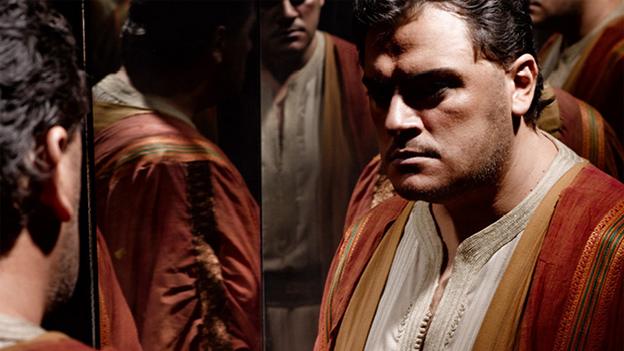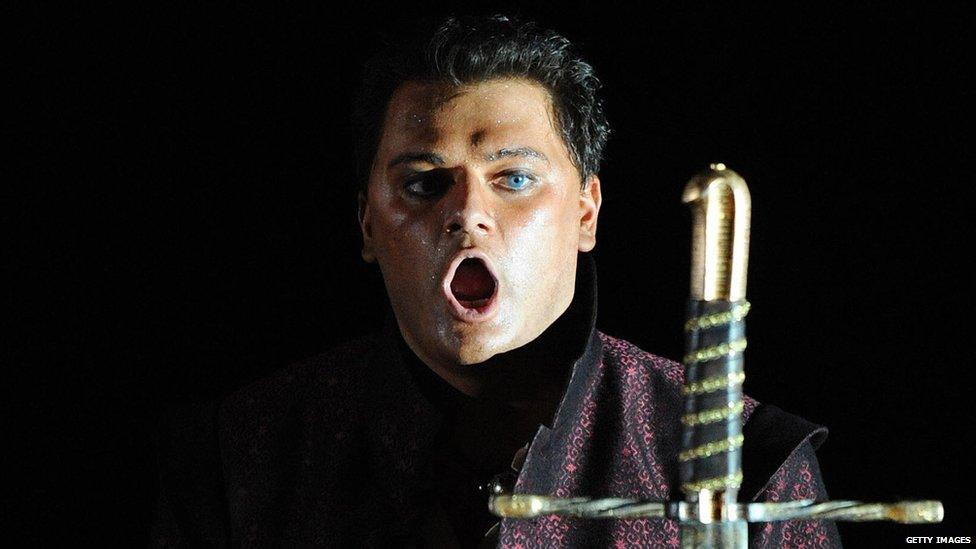No 'blackface' for Metropolitan Opera's Otello
- Published

Promotional material showed Aleksandrs Antonenko appearing to have bronzed skin
New York's Metropolitan Opera has said it is to break with operatic tradition and not use skin-darkening make-up on the star of its new version of Otello.
A promotional photo of tenor Aleksandrs Antonenko showed him looking, according to the Hyperallergic website, external, "like he'd had a bronzer malfunction".
The company has used dark make-up for Verdi's opera since its first production of Otello in 1891.
But Met general manager Peter Gelb said it "makes sense" to end that practice.
He told Hyperallergic: "We recently came to the conclusion that it would make sense, that this production should not employ any [dark] make-up. I realise it's a sensitive issue.
"We feel that it's the appropriate direction for this production and we're happy with that decision."

Antonenko also played Otello at the Salzburg Festival in 2008 (pictured)
The decision was reached with the production's director Bartlett Sher, he said.
"Quite frankly, Bart and I have talked about this for some time, how [Otello] should look in this production, so it's a decision that has evolved over time."
The brochure photograph of the Latvian tenor was achieved "mostly through shadowy lighting", he said, adding: "It was meant to be very moody and atmospheric."
Verdi's Otello, first performed in 1887, is based on Shakespeare's Othello. The title character is described as a Moor, a term that referred to people from north Africa.
In 2014 The English National Opera staged a production of Otello by David Alden, in which the lead performer also did not wear dark make-up.